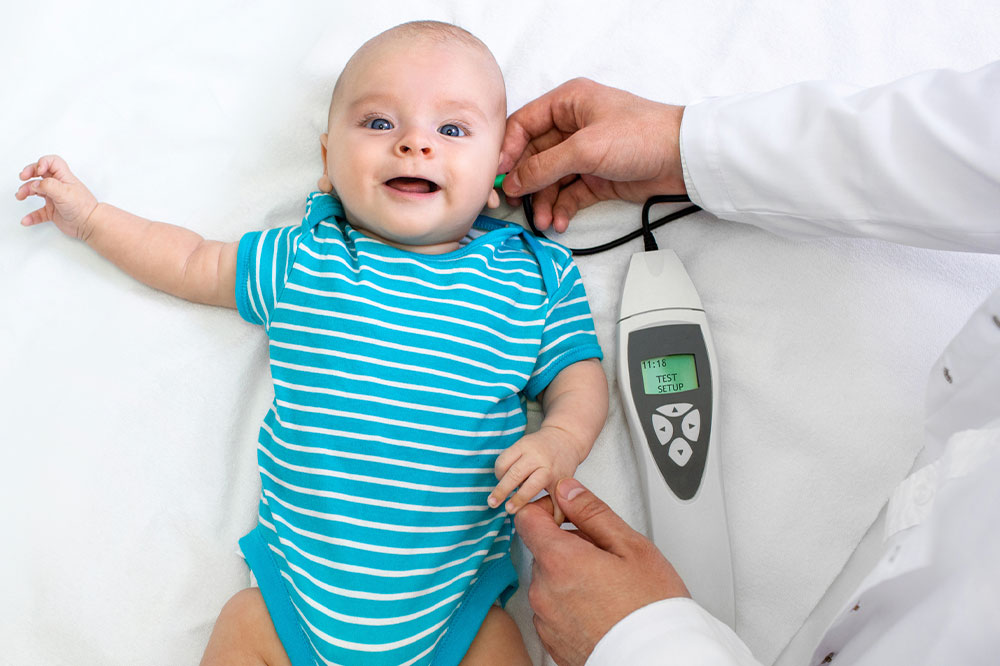
The importance of hearing tests for babies
Almost 1-3 in every 1000 babies are born with hearing loss or the inability to hear all sounds within the normal auditory range. Hearing tests for newborns help identify this loss as early as possible so parents can get the proper support. These steps facilitate a better chance of babies developing language, speech, and communication skills. Although not compulsory, this test is highly recommended. It can be conducted until the baby is three months of age.
Why do newborn babies need hearing screening?
Without a hearing screening, it is tough to discern the changes in hearing in the early stages of a baby’s life. A hearing test allows new parents to be aware of any special needs that the baby may have.
As babies grow, they start by responding to sounds made by external stimuli. They may not necessarily respond to all sounds. In some cases, they may be able to hear sounds around them, but not hear enough to understand spoken language.
With the right care, support, and early intervention programs, hard-of-hearing babies are likely to have a better chance at healthy development. Ignoring the crucial auditory sense can impact the baby’s language and communication skills and academic and socio-emotional development.
How is the newborn hearing test done?
Data from the CDC suggests that over 98% of newborns receive the newborn hearing screening test. Two quick, painless screening methods may be used:
Automated Auditory Brainstem Response (AABR)
This test is used to measure how the hearing nerve and brain respond to sound. It makes use of electrodes that are placed on the baby’s head. Soft sounds or clicks are played through the earphones, and the brain’s response is measured.
Otoacoustic Emissions (OAE)
This test measures the sound waves in the inner ear using a tiny probe. Similar to the above test, clicks or tones are played in the baby’s ear, and the brain waves are measured.
The results of this test are given immediately after screening. However, a second test may be required if the results from the first one are unclear.
What happens if a baby does not pass the test?
Babies who do not pass the auditory screening are referred to the audiologist. Trained to test hearing, audiologists work alongside otolaryngologists to conduct additional hearing tests to confirm hearing loss, how much hearing it affects, as well as the type and degree of hearing change.
Depending on the state one lives in, the Early Hearing Detection and Intervention Program (EHDI) can help provide more information regarding living with hearing loss. Deaf or hard-of-hearing babies must be referred to early intervention for evaluation and services. Early intervention and school programming for children who are hard of hearing are also supported by the Individuals with Disabilities Education Act (IDEA).
Several intervention services or resources are available for babies with hearing loss (and their parents). Some of these include:
Meeting with a professional or a team who is trained to communicate with children who have hearing loss.
Working with a professional who can help improve communication between the child and other members of the family.
Introducing a hearing device to the baby, such as a hearing aid.
Family support groups, where people can learn from others’ experiences.




